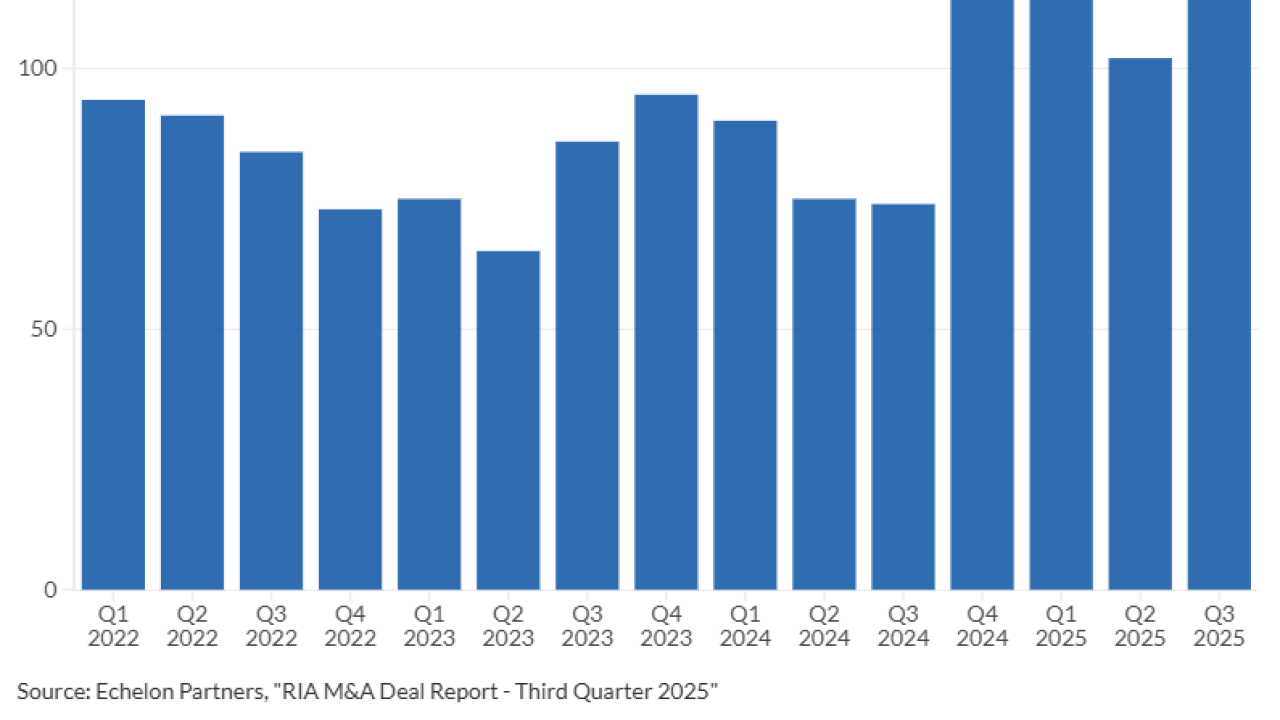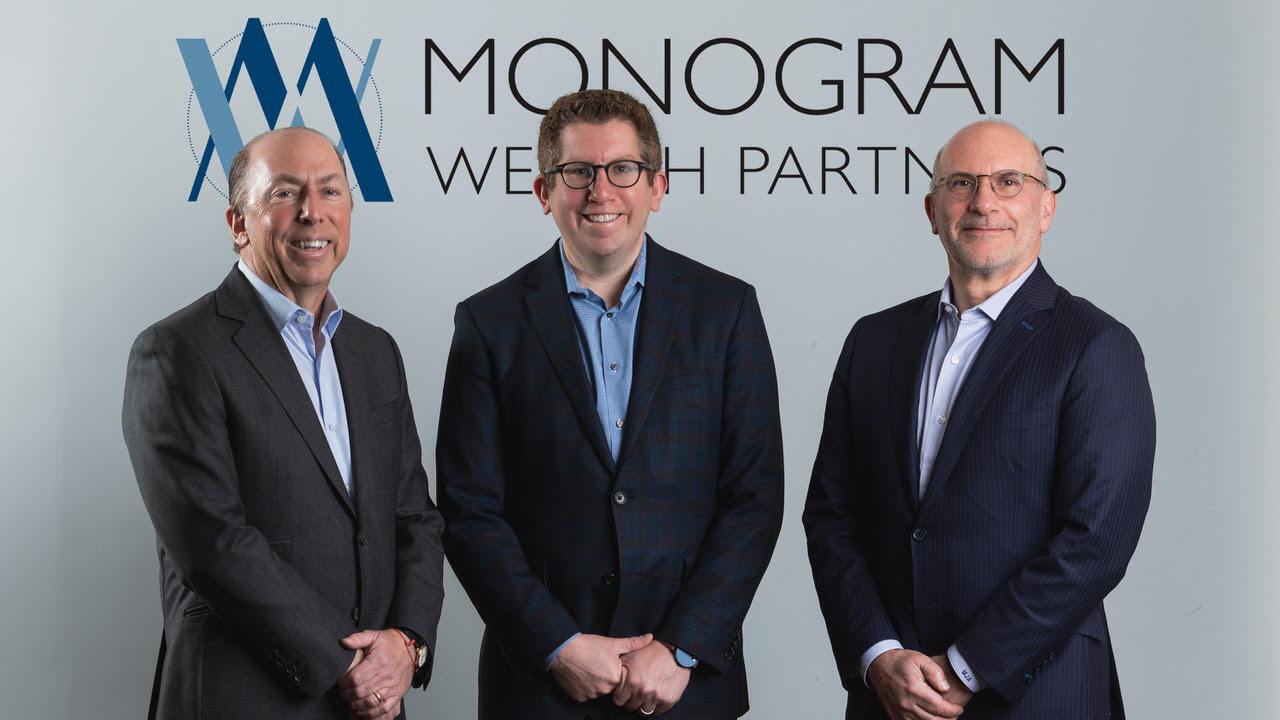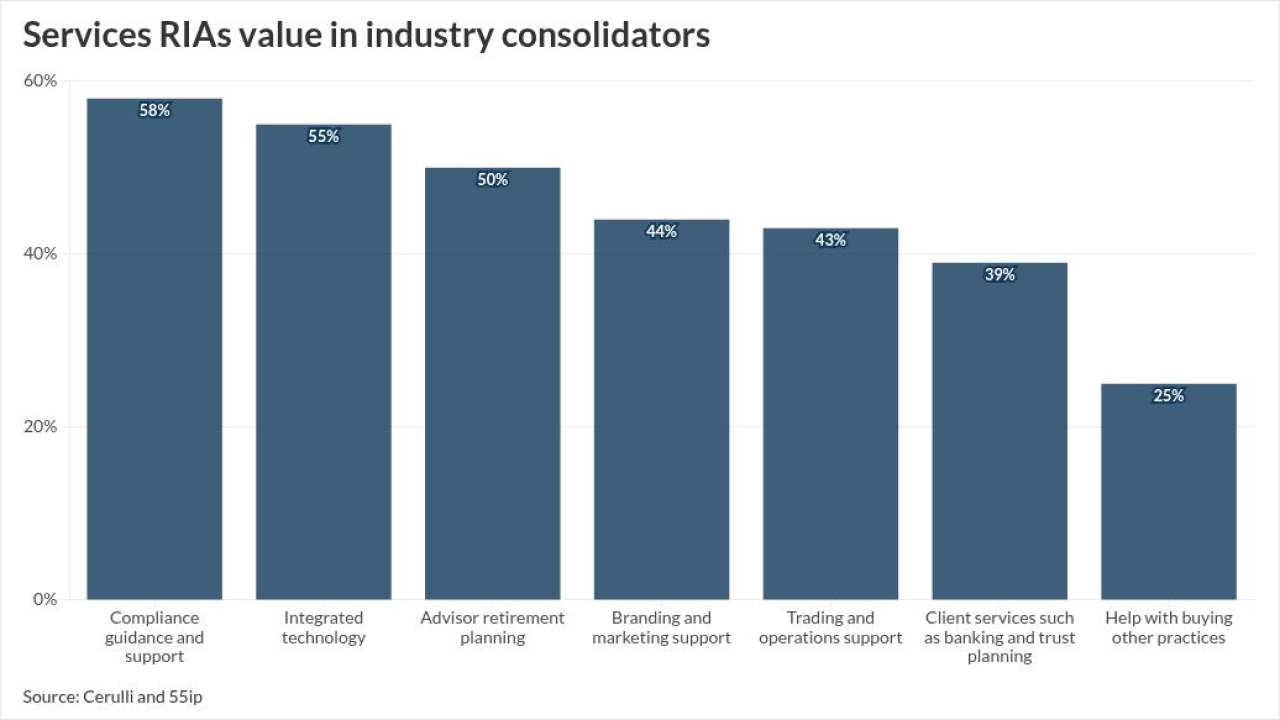A recent pair of fintech acquisitions show how serious the advisor industry is getting about digital marketing.
FMG Suites, a company specializing in marketing software for financial advisors, kicked off December by acquiring Twenty Over Ten, a competing digital marketing platform. On the same day, digital marketing provider Seismic acquired Grapevine6, a fintech firm with a social media sales platform for advisors. Terms were not disclosed for either deal.
The flurry of M&A this year could indicate that 2020 has been a more challenging business climate than fintech executives have let on, says Scott Smith, director of advice relationships at research firm Cerulli Associates. When
Since then, Motif Investing
“Funding is starting to dry up. Everyone is starting to look for an exit strategy if they haven’t had a striking amount of success already,” Smith says.
However, the challenges of 2020 did not inspire Twenty Over Ten’s decision to sell, according to head of sales and marketing Samantha Russell. The firm was already actively exploring opportunities for additional capital, and the remote-working environment only underscores the value of digital marketing, Russell says.
“All 2020 has done is accelerate our growth,” she says. “There’s a need more than ever for digital engagement tools. We’re having our most successful year.”
The pandemic poured rocket fuel on trends already under way, she says. Software for investment management and financial planning are now commonplace among advisors, but firms can stand apart from the competition in how they reach new clients, Russell says.
“Advisors have recognized the need for a really strong digital marketing and communications strategy,” Russell says. “It all that tipping points with this pandemic and the social distancing and stay-at-home orders put in place.”
In the end, an acquisition made the most sense, not just for capital but exposure to FMG’s relationships with broker-dealers and insurance firms, Russell says.
Smith agrees that marketing is a logical next step to help advisors differentiate as adoption of other digital tools
“Rebalancing portfolios isn’t the most difficult thing, it’s getting new clients,” Smith says. “If [technology] can automate that and make it easier, that’s something that’s going to show up in advisors pocketbooks.”
A renewed interest in marketing could also signal that fee-based advisors are preparing for slower investment returns in the near future, Smith says. While a historic bull market made it easy to increase assets under management, it also hid some organic growth problems at many firms, he says.
“It allowed them to not focus on finding new clients,” Smith says. But with
“Client acquisition has always been one of those things on the top of advisors’ to-do lists. They know they should be doing it, just like exercising more, for example,” Smith says. “If you can get a technology platform that can really, really make it easy and create good content, then by all means [advisors] want to pay for that.”
That’s exactly what FMG wants to be — a digital marketing hub with the largest library of content for financial advisors, says CEO Scott White. The technology helps advisors create video commentary, holiday emails, automated social media posts and monthly newsletters, all while working in sync with a firm’s compliance department, White says.
FMG is owned by private equity firm Aurora Capital and counts large broker-dealers like LPL, Cetera and Advisor Group among its clients. With Twenty Over Ten, which is FMG’s sixth acquisition in four years, the firm will expand its presence among independent RIAs, White says. FMG will also absorb Twenty Over Ten’s staff of 40 people, including its leadership team, and gain its capabilities in website design and lead generation.
“If you think about a financial advisor and what they are trying to accomplish — they got into the business because they love to help people manage their money,” rather than spend time marketing themselves, White says. But most independent firms aren’t big enough to hire a professional marketer or pay for one of the big outsourcing platforms, he adds. “They need one built especially for them that is easy to use, full of content, [automates] it for them and connects to their compliance department.”
Meanwhile, Seismic hopes to use Grapevine6’s artificial intelligence engine to help advisors engage with clients on social media with a new product it’s calling Seismic LiveSocial.
“Social media has transformed the buyer’s journey,” said Grapevine6 CEO Mike Orr in a statement. “Savvy buyers now use social media to not only gather information and connect with peers, but also to research the sales professionals and advisors they’re partnering with.”
Seismic works across industries and counts companies like IBM and American Express as its customers, but is looking to grow more in financial services. The firm raised an additional $92 million in funding in September to accomplish that goal, and can use Grapevine6’s relationships with large wealth management firms to expand its presence among financial advisors.
The companies were unavailable for additional comment.






